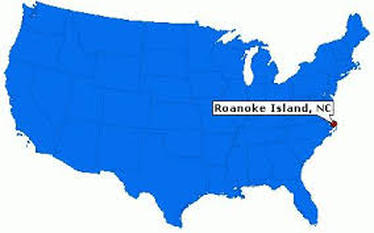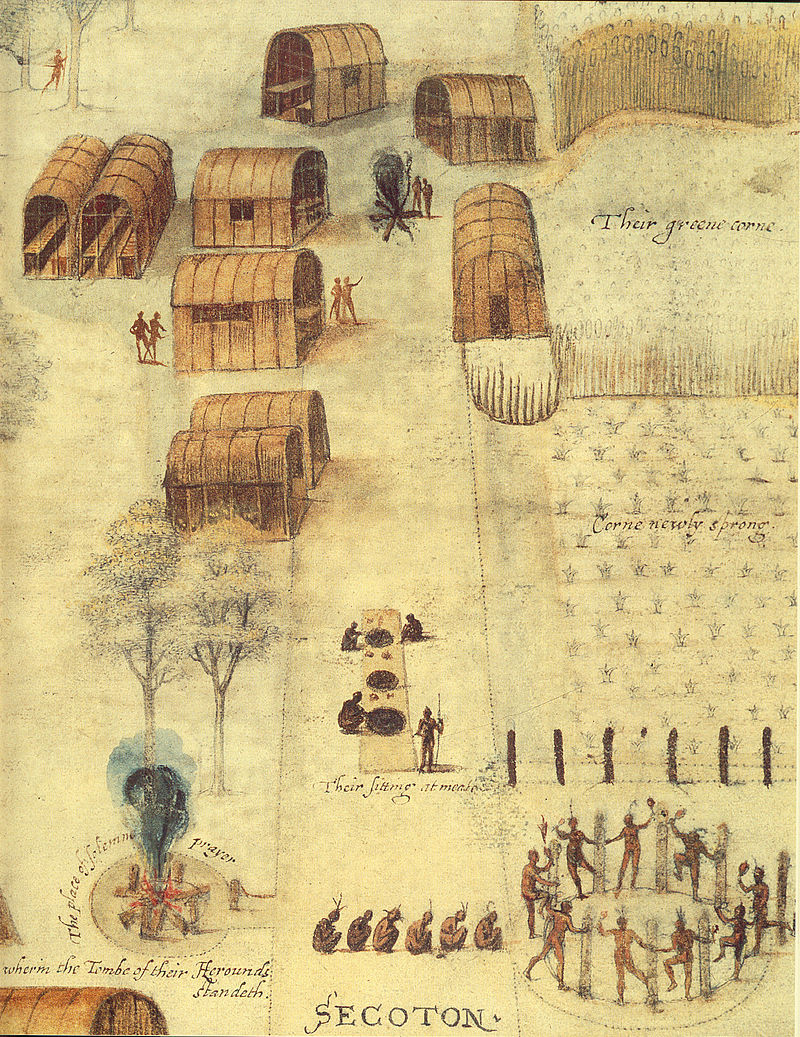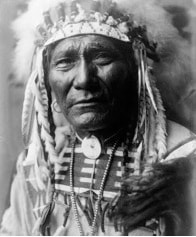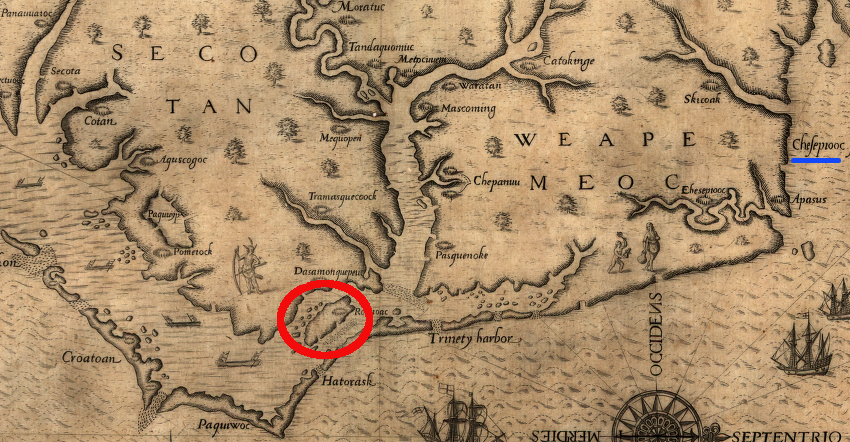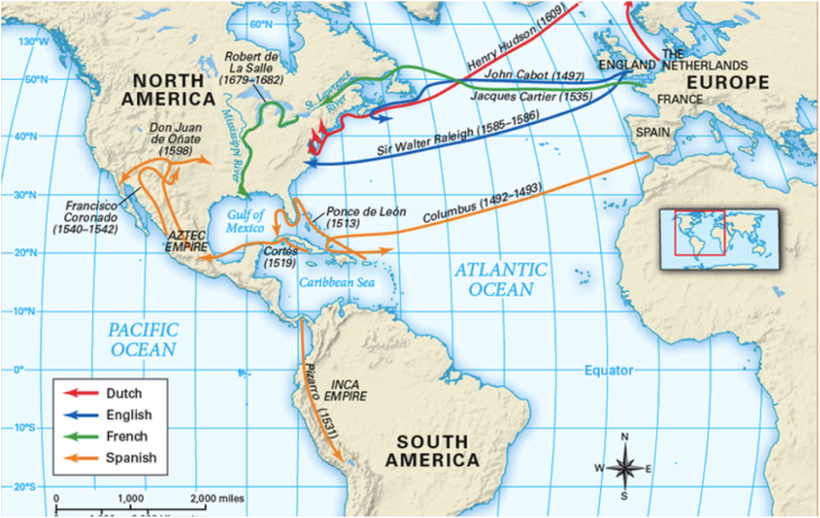Chapitre 1 | De la colonisation à l’indépendance des Etats Unis
The First British Colony in North America
The First British Colony in North America
Elizabeth I came to the throne of England in 1558 at the age of 25. Her special favourite was a man named Sir Walter Ralegh. It was Ralegh's inspiration and guidance that led to the first English-Speaking communities in the New World.
|
The story of what was to become the first American settlement starts in the late 1570s when Sir Humphrey Gilbert, under charter from Elizabeth, claimed Newfoundland for England. Ralegh , who was Gilbert's half brother, took up the mission on his death. He chartered two ships to sail to the New World in 1584, where they made landfall on 13th July, on the coast of North Carolina, near a place soon to be called Roanoke Island.
|
|
The land, they noted, was: "[...] that I thinke in all the world the like abundance is not to be founde..".
They met Algonquin Indians, whom they described as "gentle, loving and faithful'. Then they came home, bringing with them two Indians, Manteo and Wanchese, to give Ralegh, who had remained in England, first-hand knowledge of the new possession which, in a typically flattering gesture, he named Virginia, after his Queen (Elizabeth I was nicknamed 'The Virgin Queen'). |
The next spring, Ralegh commissioned a second expedition, a colonising mission this time. Accompanied by Manteo and Wanchese, some 168 adventurers returned to Roanoke. They wanted to establish a permanent settlement. Thomas Hariot, a scientist, described what he found with the excitement of a man confronted to an exotic new landscape.
However, the wonder was short-lived. Relations with the Indians deteriorated rapidly, as food became scarce and the Englishmen raided the Indian fish-trap. By the summer of 1586, the two sides were in a state of open war. The now-besieged colonists had to beg a rescue.
However, the wonder was short-lived. Relations with the Indians deteriorated rapidly, as food became scarce and the Englishmen raided the Indian fish-trap. By the summer of 1586, the two sides were in a state of open war. The now-besieged colonists had to beg a rescue.
|
Undiscouraged by the failure of this first colony, Ralegh organised another, on an even grander scale, to establish 'the Cittie of Ralegh in Virginea'. Each man was granted 500 acres as an inducement to go. By July 1587 Governor White had established a base on Roanoke Island. A month later, White's daughter, Eleanor, gave birth to a girl, christened Virginia, the first child of English parentage to be born in the New World.
However, right from the start, the Indians were hostile. They killed one colonist who was fishing and the colony was soon in jeopardy. White was prevailed upon by other colonists to return to England for help, mainly food and supplies. What took place after White's departure is a mystery. He was unable to return as quickly as he would have liked - it was now the year of the Spanish Armada, 1588 - and all the ships were needed for the defence of the English realm. |
However, right from the start, the Indians were hostile. They killed one colonist who was fishing and the colony was soon in jeopardy. White was prevailed upon by other colonists to return to England for help, mainly food and supplies.
What took place after White's departure is a mystery. He was unable to return as quickly as he would have liked - it was now the year of the Spanish Armada, 1588 - and all the ships were needed for the defence of the English realm.
What took place after White's departure is a mystery. He was unable to return as quickly as he would have liked - it was now the year of the Spanish Armada, 1588 - and all the ships were needed for the defence of the English realm.
Finally, after many delays and crises, White set sail in March 1590, about two-and-a-half years after he had left Roanoke colony. Arriving on the coast of North Carolina, he and his men first anchored off Roanoke Island. They blew a trumpet and sang familiar English songs to the silent landscape. There was no answer. The nest day they landed. All the houses had disappeared. A palisade had been built but there was no sign of any defenders, alive or dead. White found three letters, CRO, carved on a tree, but to this day their meaning remains a mystery.
Roanoke Island became known as 'The Lost Colony'.
Roanoke Island became known as 'The Lost Colony'.

